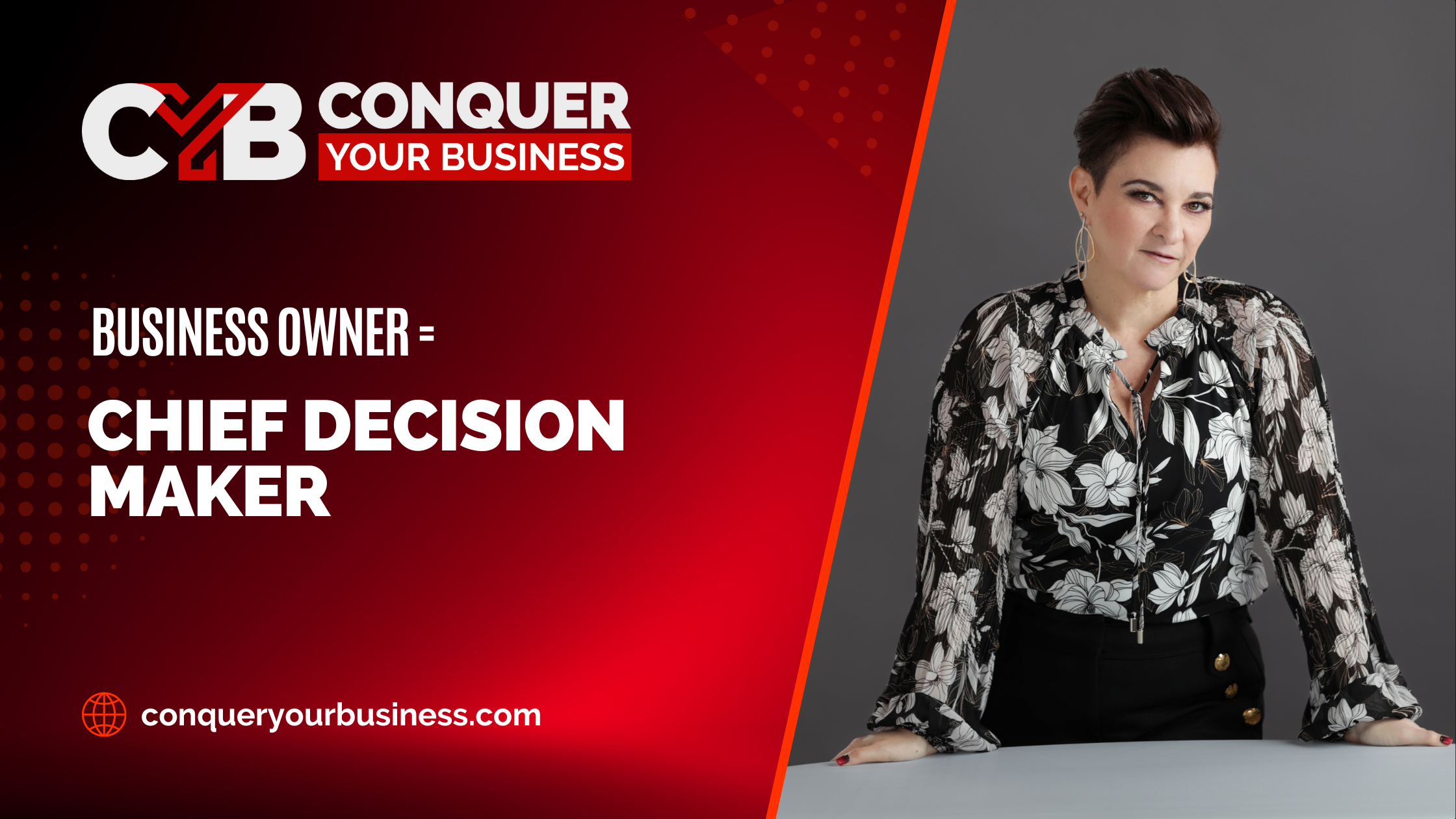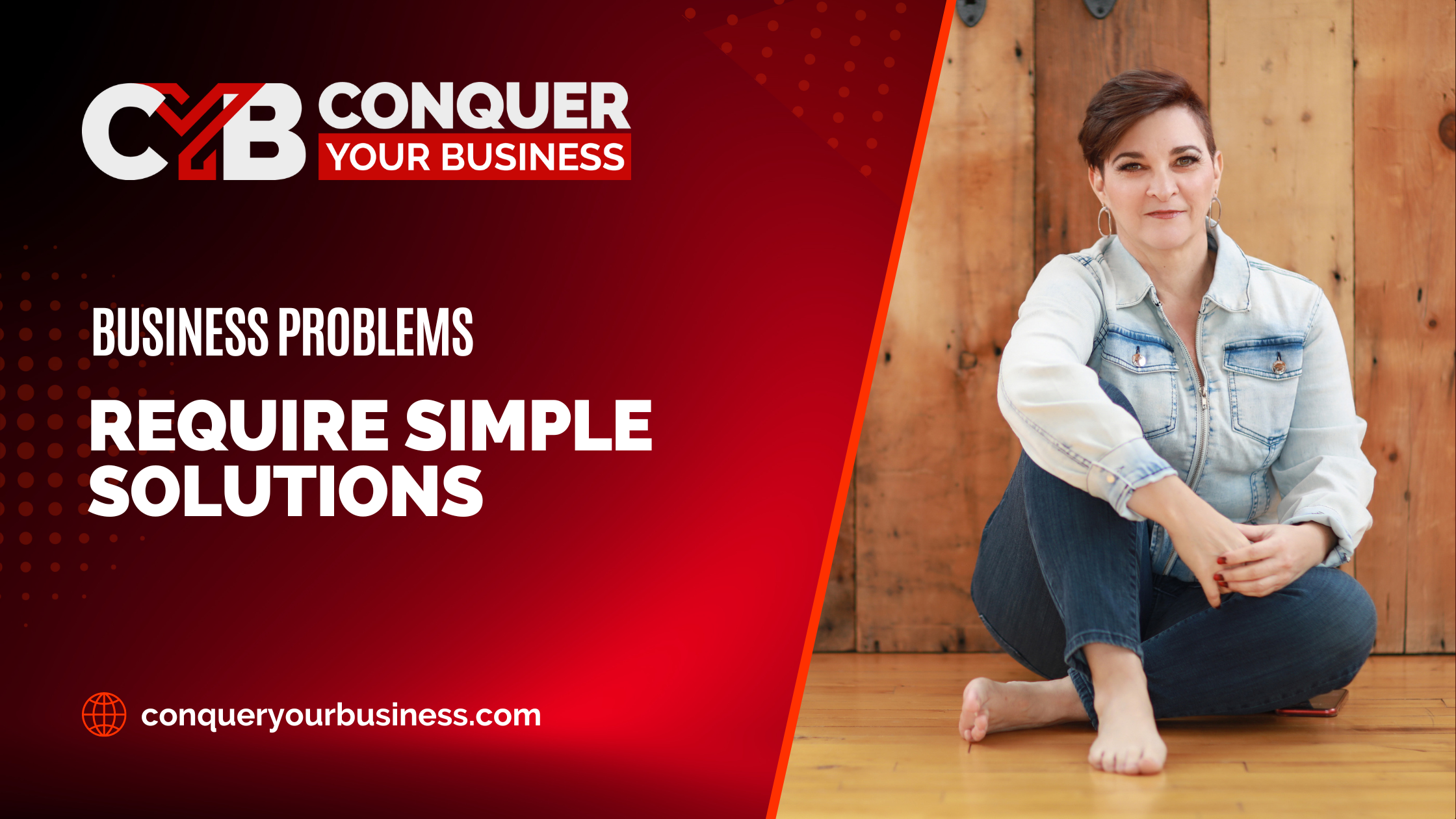Growing a business can be an exciting and rewarding journey, paving the way to your dream lifestyle. However, without the right strategy, running your business can seem like traveling down a Chicago highway after the first thaw, with massive potholes everywhere threatening to give you a flat tire or break an axle. As a business coach, I frequently speak with entrepreneurs who have tried to implement plans misaligned with their company’s current position and found themselves on one of these bumpy roads.
The wrong strategy for growing your business wastes precious time and capital. Relying on trendy tactics and methods that you are not ready to use will leave you feeling stuck—spinning your wheels and questioning why you started this endeavor in the first place.
I understand the temptation to scale hastily. Shiny new tactics promise you huge growth with little effort. Those can be extremely appealing when it feels like you are out of hours in the day, or that growing your business is not happening quickly enough. However, using the right strategy for the current stage of your business will ensure that you are doing the right work – and sometimes less work – to move your business forward on the right road.
Understanding Business Stages: Growth, Leverage, and Scale
The key to choosing the right strategy is aligning your growth strategies with the specific problem you need to solve in your business. I categorize business growth into three stages:
Growing
This stage means that you need more of what you currently have. Growth could mean more clients and more revenue. Successful, timely growth establishes the foundation for your business; you cannot move into the other stages without this foundation.
Leveraging
During this stage you need to start getting more ROI from your existing assets. Leveraging is about being able to serve more clients simultaneously. For example, if you are a coach, leveraging means moving from 1-on-1 clients to a group coaching program so that you can leverage your time. Leverage can mean moving from networking to speaking so that you can meet more people at once. For service-based professionals, it means hiring an additional consultant or person to provide the service you offer.
Scaling
In this stage, it is time to include passive income streams and automation in your business. If we were to use a mathematical comparison, scaling is all about multiplication, while leveraging is basic addition. For example, scaling means moving into mass strategies like automated marketing funnels or hiring a third-party marketing agency.
Common Mistakes in Business Strategy
Expanding a business with the wrong strategy at the wrong time is an easy trap. Using an example from my own industry, many coaches and service professionals are tempted to immediately jump to passive income ideas like creating an online course when their capacity to serve clients reaches an upper limit. However, this often backfires.
Online courses require extensive upfront effort and finances to create, along with an established audience to market to. Without sufficient bandwidth or funds, we inadvertently exacerbate the capacity issues we aimed to resolve. Instead of growth, the business owner experiences more frustration, exhaustion, and lost time and money.
The problem is not the online course itself, it is that the business was not ready for this strategy. They did not have the bandwidth in their schedule to create the course, or the finances available to pay someone to help them or build the whole course for them. And they did not have the audience and following required to sell the course to enough people to make the effort worth it.
Another example happens when service businesses add tangential revenue streams that do not make sense. For example, I just had a dental appointment and noticed that my dentist now offers Botox injections. While I applaud her for trying to expand her services, it seemed to be an odd addition. It would never occur to me to go to my dentist for Botox.
The takeaway from these examples is to ensure that your growth strategy matches your business’s current position. Premature scaling wastes energy that could be better spent strengthening operations, marketing, and finances through existing channels.
Falling Into the Tactics Over Strategy Trap
One of the reasons people try to scale their business too quickly is that the people teaching online insta-tactics are excellent marketers. They make the process seem straightforward and achievable. They tell you that they sent one email and sold $100,000 in services, but they did not tell you about the immense work and preparation they did for years in order to build the audience, craft their message, and get to the point where they could use a tactic like a marketing funnel. But when running our business already feels overwhelming, these tactics can feel like the perfect solution.
Most entrepreneurs start their business to provide a specific service, not necessarily to master strategic growth. This gap in experience can leave entrepreneurs susceptible to prioritizing shiny new tactics over sound business strategy. Reinforced by social media hype and marketing copy, tactics like building a course or adding a new revenue stream can falsely appear to be easy, quick wins.
Avoiding Scaling Too Quickly
First, recognize that no one will be as invested in the strategic success of your business as you. While some of the coaches teaching marketing tactics instead of strategy mean well, and have likely had some clients find success with their methods, you need to be able to decide for yourself if their ideas truly match your goals and bandwidth. It is important to be selective in which tactics and trends you try, to ensure that they are in alignment with your current business stage and overall strategy.
Second, focus on nailing your core offering rather than grasping for the next tactic. Your job is thrilling clients with great work, not getting caught up in internet marketing tactics. Let your business evolve organically from serving customers well rather than forcing expansion simply because online gurus deem it necessary.
Finally, build strategy skills alongside business operations. Read strategic planning and positioning books to discern strong moves from weak ones. While less glamorous than tactical tips, strategy is the foundation for sustainable success and sets you up for success in the long-run.
If you get clear on your goals, commit to steady quality growth, and build those strategy muscles, you will avoid many pitfalls in scaling your business. The best ideas done well at the right time will take you far.
Avoiding Strategic Missteps
If you’re feeling stuck between your big goals and how to actually get there, getting clear is so important. Start by asking yourself – what’s the specific issue I’m trying to solve right now? Do you need more clients, revenue, capacity? Define the core problem straight up.
Then, determine the fastest solution that delivers on that goal. Recognize that most scaling strategies are expensive and long-term, not providing immediate relief. They require substantial upfront investments of time and money before paying off. If you are struggling with having too little bandwidth or revenue, trying to scale your business too soon will not help solve those problems.
Next, identify any internal resistance, or places where you are avoiding simple but effective solutions. We often avoid simple things that work because they make them uncomfortable. Things like raising rates, hiring a team so that you can delegate work, having more sales conversations can be scary or difficult. However these basic activities frequently offer the quickest fix. Progress lives outside our comfort zone.
Additionally, complicated solutions rarely outperform simple ones consistently applied. Business fundamentals like defining an ideal customer, crafting an irresistible offer, and sharing it with those who need it most succeed far more often than flashy tactics. Marketing rarely substitutes for mastery.
Also know that simple solutions done consistently usually outperform complicated solutions almost every time. Mastering business fundamentals matters more than flashy tactics or marketing tricks.
Finally, think about getting some outside guidance. Our entrepreneurial instincts can trick us sometimes but a coach will keep you accountable, ask hard questions, and identify any mental blocks or knowledge gaps that are holding you back.




